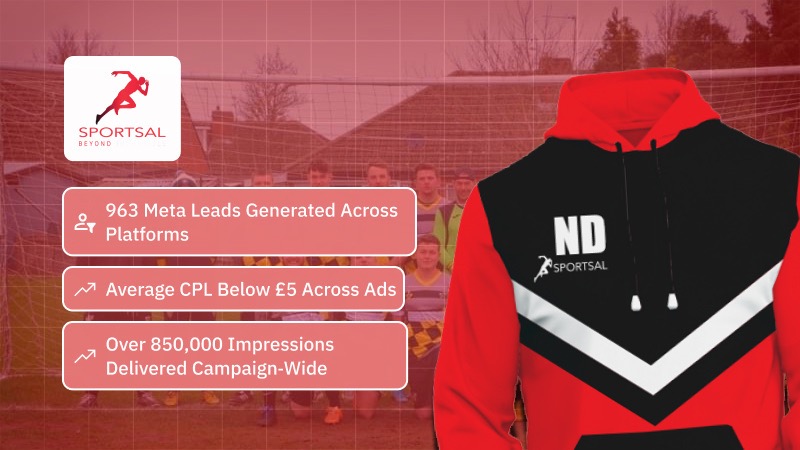Boost your site’s Google rankings with Soudcoh—SEO made simple for Aussies!

Google Search Console is a powerful tool that provides insights into how your website performs in Google search results. However, to understand how reliable it is, we need to look closely at what it's actually tracking.
At its core, Google Search Console tracks impressions, clicks, click-through rates (CTR), and average position for your site's presence in Google Search. These metrics give webmasters a snapshot of search performance, but only within Google's specific context. For example, impressions only count when a URL actually appears in a user's search results — simply being indexed isn't enough. This means large variances in actual visibility can occur depending on device types, user behaviour, or geographical location.
It's also important to note that Search Console doesn't track every visit to your website, nor does it monitor traffic from sources like social media or paid advertising. It's entirely focused on organic search performance from Google's own ecosystem. Moreover, the tool doesn't always offer real-time data — there can be a lag of a few days between when interactions occur and when they appear in the platform. That delay can make it harder to measure the immediate impact of sudden ranking changes or technical fixes.
In addition, Google aggregates data for privacy and performance reasons. This sometimes results in rounded figures or missing data, especially for low-volume queries. So while Search Console is incredibly useful for identifying trends and flagging major issues, it shouldn't be considered a complete or flawless source of truth. Understanding what it does and doesn't track is key to making informed decisions based on its data.
Clicks and impressions are essential metrics in Google Search Console (GSC), frequently used to gauge website visibility and performance. However, it's important to recognise that these figures are not always as precise as they may seem at first glance.
Impressions are counted every time a URL appears in the search results, but this doesn't necessarily mean it was seen by a user. For example, if your page appears on page two of the results and the user never scrolls past page one, it's still counted as an impression. Similarly, Google employs a degree of rounding and sampling in its data, especially for high-traffic sites, which can slightly skew the actual numbers being reported.
Clicks are typically more reliable, given that they represent distinct user actions. That said, even click data can be affected by certain limitations. Ad blockers, browser privacy settings, or rapidly clicking back and forth can cause clicks to go unrecorded or double-counted. Additionally, GSC only tracks clicks from Google Search, leaving out direct, referral, or social traffic altogether, which may cause discrepancies when comparing with data from tools like Google Analytics.
A further point to consider is the delay in data processing. GSC data can take a couple of days to update, meaning any rapid changes in traffic or technical issues could alter real-time user behaviour long before it's reflected in the metrics. This lag can impact your ability to make timely decisions based solely on GSC results, emphasising the importance of cross-referencing data from multiple sources for a more complete picture.
In summary, while clicks and impressions from Google Search Console provide a valuable window into your site's search performance, they need to be interpreted with a dose of caution. Variability in data capture, rounding, and inherent limitations mean that, although helpful for tracking trends, they shouldn't be taken as absolute truths.
Indexing reports in Google Search Console provide a snapshot of how Google sees your site, but can they always be taken at face value? While these insights are essential, they don’t always tell the whole story.
At first glance, the Index Coverage report seems straightforward – showing which pages are indexed, which aren’t, and any errors or warnings blocking your content. However, its accuracy can fluctuate. Pages marked as indexed might not actually appear in search results, and others that rank could be absent from the report. This can happen due to delays in data refreshes, crawling inconsistencies, or Google adjusting how it interprets noindex tags and canonical links.
Another issue lies in the interpretation of excluded pages. Sometimes, Google excludes pages for seemingly vague reasons like “Crawled – currently not indexed.” This doesn't provide much context, leaving webmasters to guess whether it's due to low content quality, duplicate content, or other SEO signals. Relying too heavily on these vague classifications can lead to misguided optimisation efforts.
Ultimately, while Google Search Console’s indexing reports are a valuable tool, they need to be paired with manual checks and third-party tools to paint a more complete picture. Trusting them blindly can lead to overlooking real indexing issues or chasing problems that don’t exist. An informed, layered approach works best when monitoring how Google sees and interacts with your site’s content.
While Google Search Console (GSC) offers valuable insights, it's not without its limitations. Understanding these can help users make better sense of the data and avoid drawing incorrect conclusions.
One common limitation is the sampling of data, particularly for larger websites. GSC doesn't always show the complete picture — for large-scale properties, it may only display a portion of the available data due to performance and storage constraints. This can lead to skewed impressions or overlooked trends, especially if you're relying solely on GSC for SEO analysis.
Another point of concern is the delayed reporting. Data in GSC is often 2–3 days behind, which isn’t ideal if you're trying to make timely decisions or track the impact of recent changes. Additionally, click and impression metrics can vary between GSC and other tools like Google Analytics, causing confusion when comparing datasets across platforms.
Discrepancies can also arise from privacy thresholds and filters imposed on user queries. Google obscures certain queries that are deemed too low in volume or potentially sensitive, meaning some reports may be missing keywords that still drive significant traffic. This makes it challenging to get a full understanding of user intent and behaviour without supplementing GSC with additional tools or methods.
Google Search Console (GSC) is a staple tool for many digital marketers and website owners. But is it reliable enough to shape your entire SEO strategy?
In many cases, yes — GSC offers direct insights from Google itself, making it one of the most trustworthy sources for data on how your site performs in search. It provides information on indexing status, search queries, click-through rates, and technical issues that may affect your visibility. These insights can guide decisions about keyword targeting, page improvements, and crawl error resolutions, making it an essential part of any SEO toolkit.
However, GSC does have its limitations. The data available is often delayed by a couple of days, which means you’re not seeing live metrics. Sampling can also lead to incomplete datasets, especially for large sites, and it lacks robust backlink analysis compared to other SEO tools. Despite offering a helpful overview, it's not always comprehensive when it comes to tracking nuanced content changes and their impact.
For the best results, GSC should be used in conjunction with other SEO tools. Platforms like Ahrefs, SEMrush, and Screaming Frog can complement GSC by filling in the gaps — offering competitor analysis, keyword research, link data, and real-time site audit capabilities. By combining GSC’s accuracy with the depth of third-party tools, you can build a more holistic and reliable SEO strategy.
In summary, while GSC is reliable and offers valuable data straight from the source, relying on it exclusively for your SEO plan might limit your growth potential. Treat it as a foundational piece rather than the whole puzzle.
Whether local or global, we help your brand rise in search.


